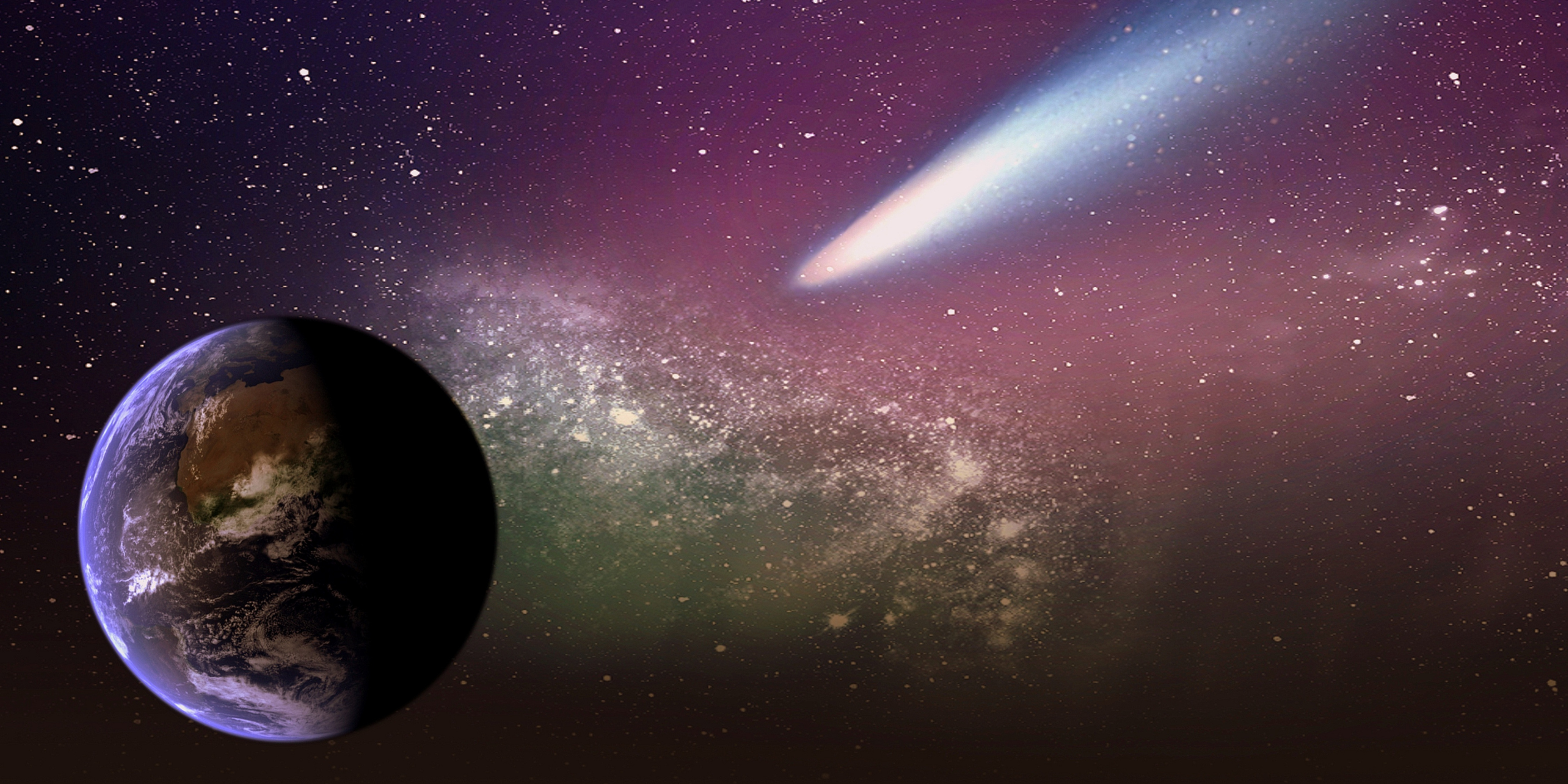
Craveology Cafe and the North Star Science Store are temporarily closed for renovation.

By David Harker, Associate Research Scientist, UCSD Center for Astrophysics and Space Sciences (CASS)
In an earlier post, I pointed out that one of the primary science questions that the Rosetta mission is hoping to address during its rendezvous with comet 67P is whether the Earth's current day oceans were composed of water delivered by comets. It is theorized that during the heavy bombardment era, which occurred some 3.8 to 4.1 billion years ago, water was delivered to Earth via comets, much like comet 67P.
Based on the current analysis of the data from Rosetta, the answer appears to be no, comets such as 67P did not contribute significantly to the Earth's oceans. However, this finding does not end the debate over whether comets deposited materials onto the young Earth. In fact, it raises more questions.
First a quick reminder about what Rosetta is looking for when it comes to water in comet 67P. Water contains hydrogen which is composed of a single proton and a single electron. Water also contains a heavier isotope of hydrogen called deuterium which is composed of a proton and an electron just like hydrogen, but also an extra neutron.
For the most part, the ratio of deuterium to hydrogen in water (called the D/H ratio) is a fixed quantity once the water is formed. This can happen when the hydrogen and oxygen molecules bond here on Earth or when they bonded on comets in outer space many millennia ago. During the Earth's formation it is thought that all of the water on Earth boiled off, requiring the delivery of water from other solar system bodies, such as comets and asteroids. By comparing the D/H ratio of the Earth's oceans to the D/H ratio of the ice on comet 67P, scientists can better theorize whether the water on Earth was derived from water that bonded on comets such as 67P.
What Rosetta has found is the D/H ratio in 67P is three times higher than the D/H ratio of the water in the Earth's oceans. This makes it highly unlikely that comets such as 67P could have contributed to the Earth’s oceans.
All is not lost though! Another intriguing development is that Rosetta also discovered molecular nitrogen in comet 67P. This is the first time molecular nitrogen has been measured in a comet. Perhaps nitrogen was deposited on Earth by comets!
What Rosetta found is that there is too little molecular nitrogen in comet 67P compared to the Earth. So just as with the water, it seems like comets such as 67P were not significant contributors to Earth's nitrogen content either.
While it might seem like these two developments represent “non-discoveries,” remember that scientific discovery can come from ruling out other potential options just as readily as it can come from confirming a theory to be correct. Comets such as 67P may not have been the source of water or nitrogen on Earth, but that still leads to a world of amazing discoveries that can be made about comets, asteroids and the geological past of our own planet.